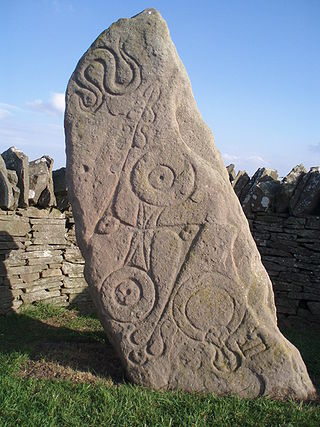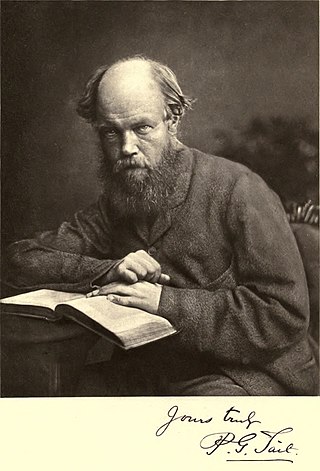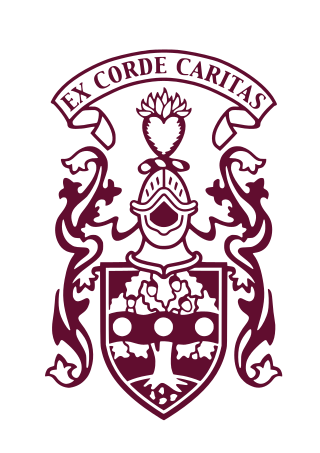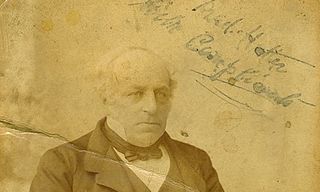Related Research Articles

Adam Smith was a Scottish economist and philosopher who was a pioneer in the thinking of political economy and key figure during the Scottish Enlightenment. Seen by some as "The Father of Economics" or "The Father of Capitalism", he wrote two classic works, The Theory of Moral Sentiments (1759) and An Inquiry into the Nature and Causes of the Wealth of Nations (1776). The latter, often abbreviated as The Wealth of Nations, is considered his magnum opus and the first modern work that treats economics as a comprehensive system and as an academic discipline. Smith refuses to explain the distribution of wealth and power in terms of God's will and instead appeals to natural, political, social, economic, legal, environmental and technological factors and the interactions among them. Among other economic theories, the work introduced Smith's idea of absolute advantage.

The Picts were a group of peoples in what is now Scotland north of the Firth of Forth, in the Early Middle Ages. Where they lived and details of their culture can be gleaned from early medieval texts and Pictish stones. The name Picti appears in written records as an exonym from the late third century AD. They are assumed to have been descendants of the Caledonii and other northern Iron Age tribes. Their territory is referred to as "Pictland" by modern historians. Initially made up of several chiefdoms, it came to be dominated by the Pictish kingdom of Fortriu from the seventh century. During this Verturian hegemony, Picti was adopted as an endonym. This lasted around 160 years until the Pictish kingdom merged with that of Dál Riata to form the Kingdom of Alba, ruled by the House of Alpin. The concept of "Pictish kingship" continued for a few decades until it was abandoned during the reign of Caustantín mac Áeda.

A rector is a senior official in an educational institution, and can refer to an official in either a university or a secondary school. Outside the English-speaking world, the rector is often the most senior official in a university, while in the United States, the equivalent is often referred to as the president, and in the United Kingdom and Commonwealth of Nations, the equivalent is the vice-chancellor. The term and office of a rector can be referred to as a rectorate. The title is used widely in universities in Europe and is very common in Latin American countries. It is also used in Brunei, Macau, Turkey, Russia, Pakistan, the Philippines, Indonesia, Israel and the Middle East. In the ancient universities of Scotland the office is sometimes referred to as Lord Rector, is the third most senior official, and is usually responsible for chairing the University Court.

At Trinity College Dublin and the University of Cambridge, a sizar is an undergraduate who receives some form of assistance such as meals, lower fees or lodging during his or her period of study, in some cases in return for doing a defined job.

Peter Guthrie Tait was a Scottish mathematical physicist and early pioneer in thermodynamics. He is best known for the mathematical physics textbook Treatise on Natural Philosophy, which he co-wrote with Lord Kelvin, and his early investigations into knot theory.

Service class people were a class of free people in the Tsardom of Russia in the 14th to the 17th centuries, obliged to perform military or administrative service on behalf of the state.
In the universities of Oxford, Cambridge, and Dublin, Bachelors of Arts (BAs) are promoted to the rank of Master of Arts (MA), typically upon application after three or four years after graduation. No further examination or study is required for this promotion, which is a mark of seniority rather than an additional postgraduate qualification.
Trinity College, Glasgow, Scotland, is the Church of Scotland's College at the University of Glasgow. It provides special supervision of candidates for the ministry through a Principal and a College Council. The college is the official channel of liaison between the University of Glasgow, the Church of Scotland, and the United Free Church of Scotland.
Guy Carleton (1605–1685) was an Anglican clergyman. He was Dean of Carlisle from 1660 to 1671, Bishop of Bristol from 1672 to 1679 and Bishop of Chichester from 1678 to 1685.
Rustication is a term used at Oxford, Cambridge and Durham Universities to mean being suspended or expelled temporarily, or, in more recent times, to leave temporarily for welfare or health reasons. The term derives from the Latin word rus, countryside, to indicate that a student has been sent back to his or her family in the country, or from medieval Latin rustici, meaning "heathens or barbarians". Depending on the conditions given, a student who has been rusticated may not be allowed to enter any of the university buildings, or even travel to within a certain distance of them. The related term bannimus implies a permanent, publicly announced expulsion, at least in Oxford.

George Watson's College is a co-educational private day school in Scotland, situated on Colinton Road, in the Merchiston area of Edinburgh. It was first established as a hospital school in 1723, became a day school in 1871, and was merged with its sister school George Watson's Ladies College in 1974. It is a Merchant Company of Edinburgh school and a member of the Headmasters' and Headmistresses' Conference.

Theophilus Carter was an eccentric British furniture dealer who may have been an inspiration for the illustration by Sir John Tenniel of Lewis Carroll's characters the Mad Hatter in his 1865 novel Alice's Adventures in Wonderland and Hatta in the 1871 sequel Through the Looking-Glass.

The Assembly Hall is located between Castlehill and Mound Place in Edinburgh, Scotland. It is the meeting place of the General Assembly of the Church of Scotland.
Battel, or battels, sometimes spelled batells (Magdalen), or batels (Brasenose) is a term used originally in the University of Oxford and later also at the University of Durham to refer to food ordered by members of the college as distinct from the usual commons. Hence, it also referred to college accounts for board and provisions supplied from kitchen and buttery and, generally, the whole of a person's college accounts. Though the distinction from commons is no longer relevant, the term persists as the name for members' termly bills at many colleges at the Universities of Oxford and Durham.
Servitor may be used in the following contexts:

James Clerk Maxwell was a Scottish physicist with broad interests who was responsible for the classical theory of electromagnetic radiation, which was the first theory to describe electricity, magnetism and light as different manifestations of the same phenomenon. Maxwell's equations for electromagnetism have been called the "second great unification in physics" where the first one had been realised by Isaac Newton.
Alfred Hackman (1811–1874) was sub-librarian at the Bodleian Library.

The Renaissance in Scotland was a cultural, intellectual and artistic movement in Scotland, from the late fifteenth century to the beginning of the seventeenth century. It is associated with the pan-European Renaissance that is usually regarded as beginning in Italy in the late fourteenth century and reaching northern Europe as a Northern Renaissance in the fifteenth century. It involved an attempt to revive the principles of the classical era, including humanism, a spirit of scholarly enquiry, scepticism, and concepts of balance and proportion. Since the twentieth century, the uniqueness and unity of the Renaissance has been challenged by historians, but significant changes in Scotland can be seen to have taken place in education, intellectual life, literature, art, architecture, music, science and politics.
A commoner is a student at certain universities in the British Isles who historically pays for his own tuition and commons, typically contrasted with scholars and exhibitioners, who were given financial emoluments towards their fees.

Scottish education in the nineteenth century concerns all forms of education, including schools, universities and informal instruction, in Scotland in the nineteenth century. By the late seventeenth century there was a largely complete system of parish schools, but it was undermined by the Industrial Revolution and rapid urbanisation. The Church of Scotland, the Free Church of Scotland and the Catholic church embarked on programmes of school building to fill in the gaps in provision, creating a fragmented system. Attempts to supplement the parish system included Sunday schools, mission schools, ragged schools, Bible societies and improvement classes. Scots played a major part in the development of teacher education with figures including William Watson, Thomas Guthrie, Andrew Bell, John Wood and David Stow. Scottish schoolmasters gained a reputation for strictness and frequent use of the tawse. The perceived problems and fragmentation of the Scottish school system led to a process of secularisation, as the state took increasing control. The Education (Scotland) Act 1872 transferred the Kirk and Free Kirk schools to regional School Boards and made some provision for secondary education. In 1890 school fees were abolished, creating a state-funded, national system of compulsory free basic education with common examinations.
References
- ↑ servitor The Oxford English Dictionary. 2nd ed. 1989. OED Online. Oxford University Press. 4 Apr. 2000 Date of access 15 Oct 2006.